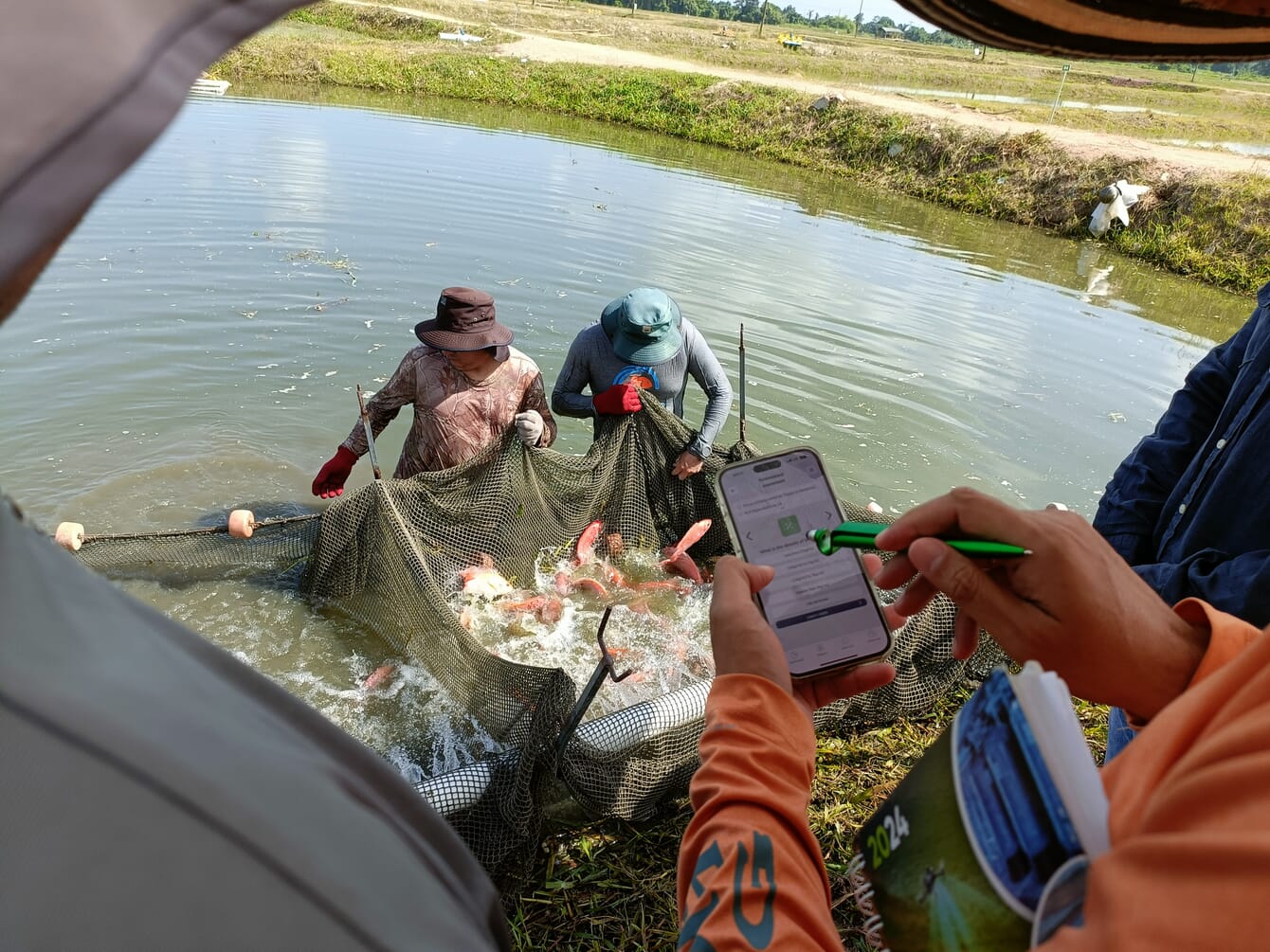
FAI’s Tilapia Welfare App helps users assess and improve fish wellbeing with a simple health and welfare scoring system © FAI
The course, Tilapia Health Welfare Indicators, is designed for vets, farmers and seafood supply chain professionals. It provides expert guidance on assessing and managing fish health and welfare in commercial operations.
The module is available free of charge through FAI’s training platform, FAI Academy. It completes a set of five welfare-focused modules forming the new Tilapia Welfare Training Program, reflecting the complexity and importance of tilapia welfare in successful aquaculture production.
Through Tilapia Health Welfare Indicators, participants learn how to assess health indicators and why they matter. They will understand the significance of common diseases in tilapia, the difference between fish health and welfare and how prioritising both reduces losses and improves productivity.
Available in six languages
The course was developed with farmers and vets across South America, Africa and Asia, as FAI’s e-learning and aquaculture program manager Dr. Sara Barrento explained in a press release: “We visited farms in several regions to include real-life examples and to check how important technical concepts could work for everyone.”
Also recognising the global nature of tilapia production and to make sure this essential learning reaches those set to benefit most, the course is available in six languages – English, Thai, Arabic, Portuguese, Spanish and Vietnamese.
The overarching Tilapia Welfare Training Program provides a comprehensive and structured way to develop tilapia welfare expertise. It combines all FAI’s specialised online tilapia courses covering nutrition, behaviour, water quality and health:
- Tilapia Health Welfare Indicators
- Tilapia Behaviour and Welfare: from foraging to humane slaughter
- Tilapia Nutrition and Welfare
- Tilapia Welfare Indicators
- Tilapia Environment and Welfare: Water Quality
It is flexible too. For those needing specific skills, courses can be taken and certified individually, but for full professional recognition, the five-module program is unparalleled. It is currently available in English, Spanish, Portuguese, Thai and Arabic, with Vietnamese available later in the year.
“We are delighted to offer such a range of courses, bringing every aspect of tilapia welfare, including environment, nutrition, behaviour, and health to those who influence fish well-being every day,” added Dr Barrento.


